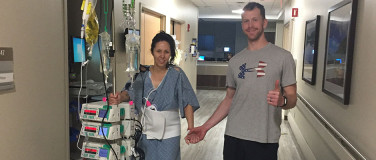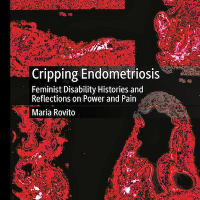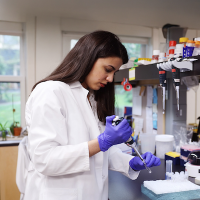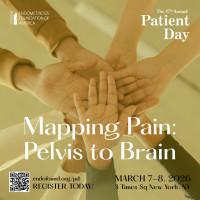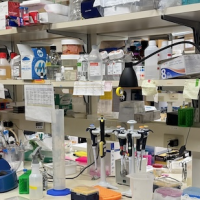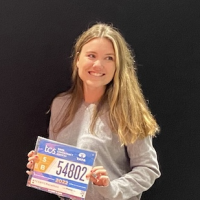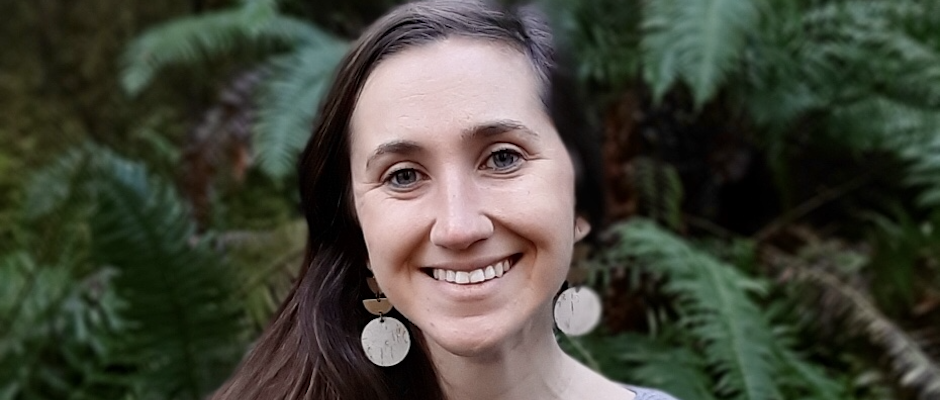
I’d like to say that my endometriosis story is different from others, but the unfortunate truth is that there are hundreds of others out there who have experienced a similar journey.
Growing up, I always had extremely painful periods. I’m talking lying on the bathroom floor, writhing in pain, and not being able to move for days. Yet, as dramatic as that sounds, I sincerely thought this was normal. At least, normal for me. My mom and sister also had experienced painful periods, so I just thought, well, I just have bad genes. My doctor also confirmed with me at a young age that my painful periods were normal. Naively, I believed them.
My best friend also had extremely painful periods, and undiagnosed endometriosis that neither of us knew at the time, so her experience washed away any doubts I may have had that my pain was abnormal. I just thought everyone had painful periods, and that I just had a low pain tolerance. Yet, no intervention ever helped. I thought Ibuprofen just didn’t work as a drug. Little did I know, the fact that anti-inflammatories weren’t helping manage my pain was a red flag. But again, my doctors didn’t know this either.
At 14 I went to a gynecologist about my pain. They offered to put me on birth control without doing an exam (I remember sitting in her office that looked more like a principal’s office than a doctor’s office). I politely declined. She said the only other thing she could offer were prescription pain medications, then rambled off the list of side effects. Funny, I thought, that she didn’t do that with the birth control medication. Again, I declined. I didn’t really know why at the time, but it just didn’t seem right.
Fast forward to my later teenage years, and my periods actually disappeared and so did the pain. I was a cross-country runner and weighed 100 pounds. I mentioned to my doctor that my period had stopped, and they said, “Oh but you’re a runner! That’s normal for females!” It was common, sure, but not normal. But I was pretty happy. At that time, my period was, at best, an annoyance, and, at worst, torture.
As my period returned more regularly in college, so did the pain. I was in nursing school at the time and thought it was just diet and stress related, but really wasn’t too concerned. From the beginning, I had painful periods and every doctor seemed to dismiss it. Taking their lead, I dismissed it too. I did learn about endometriosis in my nursing classes, and even then, it didn’t occur to me that that was what I had. Somehow, the fact that period pain could be seen as problematic didn’t stand out, and unfortunately it wasn’t a red flag for me.
Endometriosis finally got my attention in my mid-twenties. I was living in Zambia as a Peace Corps volunteer and my health took a dive. What started as a nasty parasite infection that wouldn’t go away turned into my life for the next three years. I had painful bloating, nausea, vomiting, diarrhea, spotting, heavy periods, pelvic pain, fatigue, mood swings, and extremely painful ovulation. At first, all my doctors thought I kept getting a GI infection.
Overtime, they thought I had numerous different conditions: celiac disease, a food intolerance, cancer, Addison’s disease, a worm infection, a hidden parasite infection, SIBO. And on and on. I began tracking my symptoms in a journal, and soon noticed the worst ones came every 2 weeks and were correlated with my period. I began charting my cycle and started to see a pattern that wasn’t defined by anything else. My symptoms were associated with hormonal changes. I asked the Peace Corps Medical Officer (PCMO) to see a gynecologist in Zambia three different times but was denied by my PCMO. I even asked my PCMO if I could have endometriosis, to which I was told, “Oh no. Endometriosis doesn’t cause bloating.” It does, in fact, cause bloating: 90% of those with endometriosis first present to their doctor with digestive concerns like bloating.
I dropped to a very low point in my life here; I was experiencing tremendous pain and felt like there was no end in sight. Many many times I thought about ending my life. This is something I rarely ever speak about, because, well, who wants to? But I just couldn’t imagine enduring any longer. I thought, if I just knew..if I just knew what was causing all of this. I’d run marathons, I rowed crew in high school, I had two cranial surgeries as a teen and fractured my skull—I’ve felt a lot of pain in my life. But nothing, and I mean nothing, compared to the knives and barbed wire I’d feel in my lower abdomen every month that had no known cause.
I was sent back to the U.S., ending my Peace Corps service early, with a referral to a GI doctor. At that time, I firmly suspected I had endometriosis, but no one believed endometriosis could be causing my digestive issues. I myself saw the connection, and I needed to find a doctor who could listen and help. I found a gynecologist on my own and asked about endometriosis. She said, “Yeah you probably do have it. But your only treatment options are to get pregnant or take birth control.” Pregnancy wasn’t an option for me (nor is it a medical treatment) and I still didn’t see how birth control would help. So, I said no. A year went by, along with $1,000’s of dollars and numerous doctors visits, and still no answer was found.
I took a break from searching, and decided to look into endometriosis a little further. I read many women’s health books and a few digestive health books for women, and all of them confirmed that endometriosis can cause bloating. I continued charting my cycle and got to the point where I could predict when I would have a flare of symptoms. Being a nurse and trained in assessment, I was charting absolutely everything. It was clear that my symptoms corresponded with my menstrual cycle and hormonal changes.
In 2021, I self-referred to an endometriosis excision specialist, who immediately suspected I had endometriosis. They recommended excision surgery, and in April of 2021, I got my diagnosis. I had endometriosis.
It took me 15 years to be diagnosed. I had my first period at 11, never took hormonal birth control and was never pregnant, which meant I experienced many painful periods. For over two years I suspected I had endometriosis, but I just needed to find the right person to diagnose me. Now I am almost a year out from that surgery. While the surgery didn’t treat every single symptom, I have made tremendous progress. Nothing I did made a dent in my symptoms until I had excision surgery. It was truly life changing for me.
Today, I am a totally different person. On the outside, I look mostly the same. Endometriosis will do that to you, as it requires many changes in order to properly manage it for the rest of your life. Inspired by my own experience, I have started my own business teaching women how to use their menstrual cycle as a tool to identify health concerns. I also continue to advocate for women’s health and spread awareness about endometriosis on social media. Because no 11-year-old girl should ever have to experience what I did, and what millions of women did (and still, of course, do): going 7.5+ years on average with debilitating pain and not knowing why.
So, I will share, and today, I will write. Because it shouldn’t have taken a registered nurse 15 years to be diagnosed with a condition that 1 in 10 women have. It shouldn’t have taken me 14 years to first hear the words “excision specialist.” It shouldn’t have taken 19 different doctors, from two different countries, over two years, to consistently just tell me that “everything looks normal.” I should never have been told that endometriosis doesn’t cause bloating, when bloating is one of the most common symptoms. And I shouldn’t have had to self-refer to a specialist for a condition that is as common as diabetes.
Morganne Skinner, RN, BSN is a registered nurse of 7 years with experience in surgical-trauma ICU, rehabilitation, communicable disease and maternal child health. She served as a Peace Corps volunteer for two years in rural Zambia. Currently, she lives on the Oregon Coast and works as a nurse writer and fertility awareness educator.
Editor's note: Would you like to contribute to EndoStories? Click here to learn how to submit your work.
*Patient stories submitted to EndoFound.org are the views of the patient and not necessarily those of the foundation. All testimonials are from real patients, and may not reflect the typical patient’s experience, and are not intended to represent or guarantee that anyone will achieve the same or similar results.



